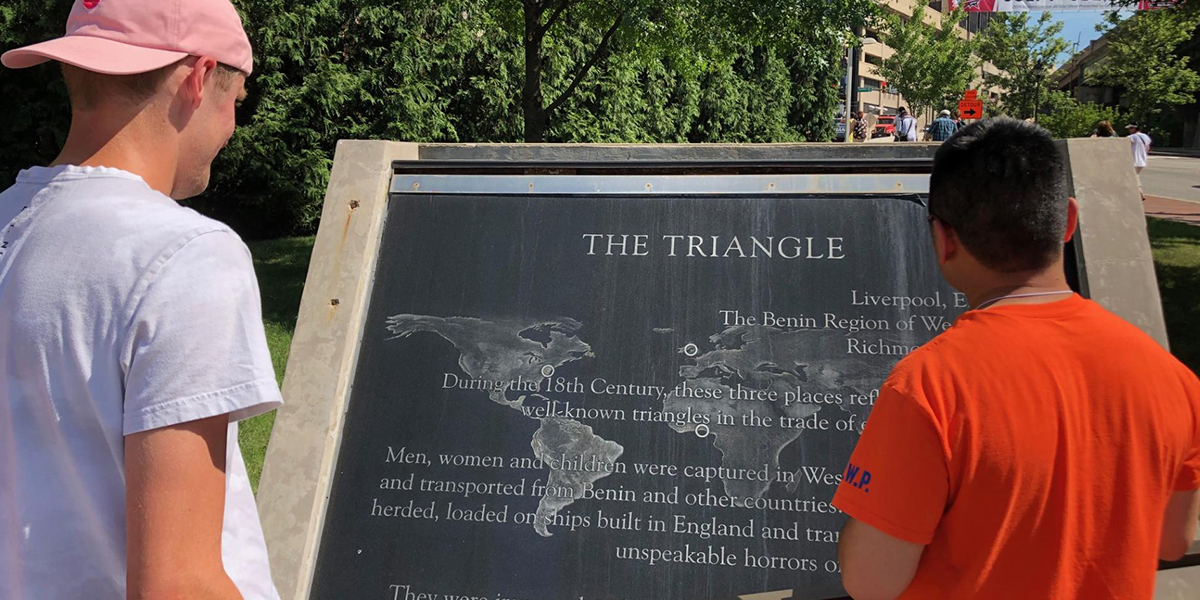
Six University of Wisconsin-Platteville education students recently gained knowledge about the American Civil War at the “Civil War 101 Teachers Institute” at the American Civil War Museum in Richmond, Virginia.
The three-day institute examined the compromises and controversies leading up to the American Civil War and provided an overview of the war and its effect. It also delved into the challenges wartime presidents Abraham Lincoln and Jefferson Davis faced and explored the outcomes of the Civil War, providing a framework for understanding Reconstruction and the legacies of the war.
Students were led by Dr. Jen Collins, director of the School of Education at UW-Platteville.
“Even though our students come from smaller, rural communities, the School of Education realizes that we are responsible for preparing teachers who possess a broader understanding of the world around them,” said Collins. “To that end, we do our best to provide experiences that broaden and deepen their understanding of the content and context they will teach. Where better to learn about the Civil War than in the capital of the Confederacy itself, Richmond, Virginia?”
The students’ enhanced understanding of the war will benefit them in their future careers as teachers.
“This learning experience opened my eyes to the numerous diverse ways the subject can be used within the classroom while offering methods to approach potentially complex topics,” said Hannah Goetler, a senior elementary education major from Roscoe, Illinois. “I think all future teachers should take advantage of opportunities like this to further their education on subjects so important to our history.”
Brandon Larsen, a senior history education major from Middleton, Wisconsin, agreed, adding, “The most important thing I took away from the institute was the way in which we learned to talk about slavery, in a way that both informs and educates people while avoiding the possible pitfalls of such a subject as race.”
Parker Debroux, a senior middle level-education (social studies) major from Oregon, Wisconsin, said the institute enabled him to learn about the American Civil War from the capital of the Confederacy. “From the events leading up to the war, to what everyday life was like for a soldier, I thought the experience was truly remarkable,” he said. “We were able to see truly historic landmarks that played a huge role in the war and the future of the country.”
Tally Botzer, interpretation and programs specialist for the American Civil War Museum, said the institute was designed to serve as both an introduction for new teachers and a refresher for seasoned educators.
“History is constantly changing as we ask new questions and uncover new stories, and teaching the Civil War and its legacies has become more and more challenging across the board,” said Botzer. “We want to arm teachers with the background knowledge to counter historical myths, as well as provide strategies that give them the comfort and confidence to do so. This is especially true for new and pre-service teachers – no one likes to be blindsided walking into a conversation about race and identity when they were prepared to talk about secession and First Manassas (speaking as a former fifth-grade teacher who did exactly that). The better we understand, the better we can help our students come to a place of understanding.”
UW-Platteville students Logan Weaver and Michelle Gould also participated in the field experience.